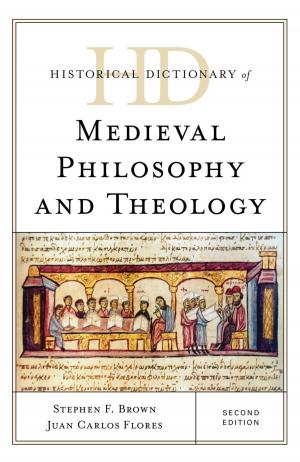The Gospels and Christian Life in History and Practice
Nonfiction, Religion & Spirituality, Bible & Bible Studies, Biographies, New Testament| Author: | Richard Valantasis, Douglas K. Bleyle, Dennis C. Haugh | ISBN: | 9780742570696 |
| Publisher: | Rowman & Littlefield Publishers | Publication: | June 15, 2009 |
| Imprint: | Rowman & Littlefield Publishers | Language: | English |
| Author: | Richard Valantasis, Douglas K. Bleyle, Dennis C. Haugh |
| ISBN: | 9780742570696 |
| Publisher: | Rowman & Littlefield Publishers |
| Publication: | June 15, 2009 |
| Imprint: | Rowman & Littlefield Publishers |
| Language: | English |
The Gospels And Christian Life reads the four canonical Gospels as handbooks for religious formation through communal practices. The book focuses on the communities that produced each gospel, the dynamic energy each gospel displays for creating and sustaining community life, the different interpretations of the person of Jesus, and the different systems of organization and leadership each gospel promulgated. The authors carefully describe the social context of each Gospel and delineate the practices the texts prescribe. Each gospel has an imaginative portal, an introductory chapter introducing the necessary background for understanding the social, intellectual, and religious setting for each gospel. Their reading of each Gospel builds on these foundations to illustrate the nature and scope of the community's practices. Their work starts from the assumption that the communities did not look to the Gospels for biographical data on the life of Jesus to offer the reader a powerful reading of each Gospel community, its unique practices, and the way people were trained to become members of it. This book is aimed at undergraduate and graduate teachers and students, pastors, and the general audience eager for new ways to understand the New Testament.
The Gospels And Christian Life reads the four canonical Gospels as handbooks for religious formation through communal practices. The book focuses on the communities that produced each gospel, the dynamic energy each gospel displays for creating and sustaining community life, the different interpretations of the person of Jesus, and the different systems of organization and leadership each gospel promulgated. The authors carefully describe the social context of each Gospel and delineate the practices the texts prescribe. Each gospel has an imaginative portal, an introductory chapter introducing the necessary background for understanding the social, intellectual, and religious setting for each gospel. Their reading of each Gospel builds on these foundations to illustrate the nature and scope of the community's practices. Their work starts from the assumption that the communities did not look to the Gospels for biographical data on the life of Jesus to offer the reader a powerful reading of each Gospel community, its unique practices, and the way people were trained to become members of it. This book is aimed at undergraduate and graduate teachers and students, pastors, and the general audience eager for new ways to understand the New Testament.















